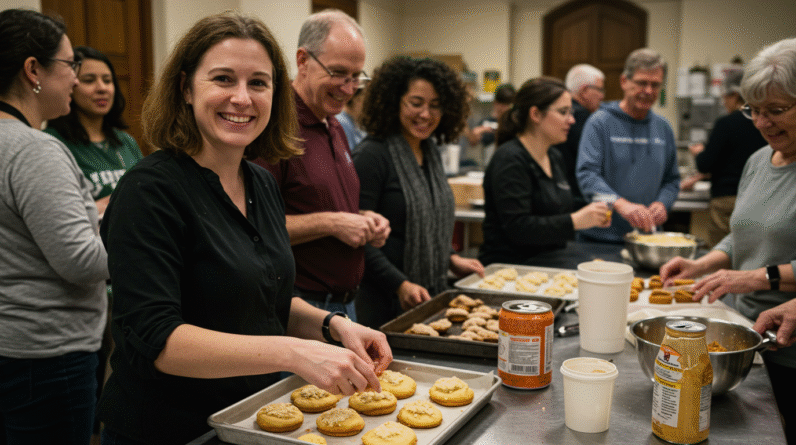Explore the inspiring story of Tabitha, a woman in the Bible renowned for her kindness and charity. Discover her legacy of compassion that transcends time.
Tabitha in the Bible: A Woman Known for Helping the Poor
Throughout history, narratives of compassion and selfless service have transcended time, leaving impressions on those who encounter them. Among such tales is that of Tabitha, also known by her Greek name, Dorcas, a woman from the biblical city of Joppa whose story continues to inspire and evoke admiration. Her acts of charity and kindness rendered her beloved within her community and marked her as a poignant example of devoted service. In an age when societal contributions by women were often overlooked, Tabitha’s legacy shines as a beacon of hope and generosity. Let’s delve into her story and uncover the timeless lessons woven into the fabric of her life—a life dedicated to aiding the poor and uplifting those in distress.
Who Was Tabitha?
Tabitha, also referred to as Dorcas, embodies a spirit of grace and elegance reminiscent of her name, which means “gazelle” in Aramaic and Greek, respectively. Her presence in the biblical account is brief, yet profound, showcasing how one life, fueled by compassion, can impact a community. Residing in Joppa, a bustling port city on the Mediterranean coast, Tabitha’s life spanned a period that was rich in cultural diversity and historical significance. Joppa was a crossroads of commerce and culture, which perhaps played a role in shaping Tabitha’s inclusive and charitable demeanor.
Cultural and Historical Context
The era in which Tabitha lived was a challenging setting for women, where societal contributions often went unrecognized, and lives were largely defined by familial roles. Yet, within these constraints, Tabitha carved out a niche for herself, identified not just by her gender but by her acts of charity. Her story, captured in the Acts of the Apostles, presents her as a bridge between cultures, blending Jewish traditions with the Hellenistic world around her.
A Life Devoted to Helping the Poor
Tabitha’s life was characterized by service and kindness. Her work with the poor, particularly the widows in her community, distinguished her. She was renowned for her skills as a seamstress, creating garments that were likely both practical and crafted with love. Her acts of mercy are vividly depicted in Acts 9:36-39, where the narrative highlights her good deeds and the investment she made in enriching the lives of others.
Acts of Kindness
The garments Tabitha made were not just clothes, but symbols of her care and commitment to uplifting others. By providing for the widows—a group particularly vulnerable and marginalized in ancient society—she demonstrated a life infused with the biblical themes of charity and service. Her actions illustrate broader biblical values, such as those found in 1 Timothy 6:18, which calls believers to do good, be rich in good deeds, and be generous.
A Community That Mourned Her
The narrative of Tabitha takes a turn with her sudden death, as recorded in the Book of Acts. Her passing sent shockwaves through her community, a testament to the depth of relationships she had cultivated. The mourning of her peers, particularly the widows she helped, is described with vivid imagery. They grieved not only for their loss but for the absence of her positive impact on their collective lives.
The Display of Garments
As Peter arrived in Joppa, he was met by a community in mourning. The widows, tangible representations of Tabitha’s impact, stood before him, showing him the garments she had lovingly made (Acts 9:39). This moment underscores the tangible impact one individual’s life can have through genuine service and love.
The Miracle of Her Resurrection
In a dramatic turn of events, Peter’s involvement culminated in a miracle that not only restored Tabitha to life but also had profound spiritual ramifications for the people of Joppa. Peter’s prayer, steeped in faith and authority, led to Tabitha’s resurrection, as detailed in Acts 9:40-42. This miraculous event catalyzed a wave of belief in Jesus among the inhabitants of Joppa. Her life, her death, and her revival served as a powerful testament to the early Christian community, demonstrating the revolutionary power of faith and service.
Life Lessons from Tabitha
Tabitha’s brief but impactful story is full of lessons relevant to any era:
- Compassion creates a legacy: Acts of kindness can ripple through a community long after we are gone.
- Skills used for service: Whatever your talents, they can be a force for good in the lives of others.
- Prompted by faith: Aligning our actions with our spiritual beliefs can have transformative effects.
- Inclusivity breeds strength: Serving across cultural and societal lines can build a resilient and supportive community.
Modern-Day Application
In our contemporary world, Tabitha’s life offers a blueprint for service and compassion. Her story invites us to consider how we might use our unique abilities to serve others, especially those in dire need. Whether through donating time, resources, or engaging in community outreach, there’s a piece of Tabitha’s spirit we can all embody today.
Reflect on your journey and consider: How might you incorporate the virtues of giving and serving to make a lasting difference? Perhaps it starts with small, consistent acts that build over time, similar to how Tabitha’s simple gift of sewing became transformative.
Reflection or Devotional Thought
Take a moment to ponder your capacity for kindness. Imagine the ripples created by one loving act and visualize how your actions could weave threads of change in your community. Use this reflection as a journaling prompt: “In what ways can I be a modern-day Tabitha?”
Related Bible Verses
For further reflection on the themes in Tabitha’s story, consider these verses:
- Proverbs 19:17: “Whoever is kind to the poor lends to the Lord, and he will reward them for what they have done.”
- Matthew 25:35-40: Jesus speaks on serving others as serving Him.
- 1 Timothy 6:18: Encouragement to do good, be rich in good deeds, and be generous.
Internal Linking Suggestions
If you’re curious about additional narratives emphasizing service and faith, explore other articles featuring women in the Bible or stories of miracles within the scriptural context. These stories, much like that of Tabitha, inspire us to lead lives of purpose and hope.

Explore More Bible Insights:
✅ 1. Serving God by Serving Others
Tone: Practical, inspirational, servant-hearted
🔹 “Live Out Your Faith with These Reads”
✅ 2. The Prayer of Jabez – 1 Chronicles 4:10
Tone: Encouraging, bold faith, personal growth
🔹 “Ask Boldly, Live Fully – Keep Reading”
✅ 3. The Promise of Eternal Life – 1 John 2:25
Tone: Reassuring, hope-filled, theological
🔹 “Secure in Christ – Explore More”
✅ 4. Lessons from the Battle of Jericho – Joshua 6
Tone: Obedience, victory through faith, historical insight
🔹 “Victory Through Faith – Read Next”
As a ClickBank Affiliate, I earn from qualifying purchases.
Acknowledgment: All Bible verses referenced in this article were accessed via Bible Gateway (or Bible Hub).
“Want to explore more? Check out our latest post on Why Jesus? and discover the life-changing truth of the Gospel!”








